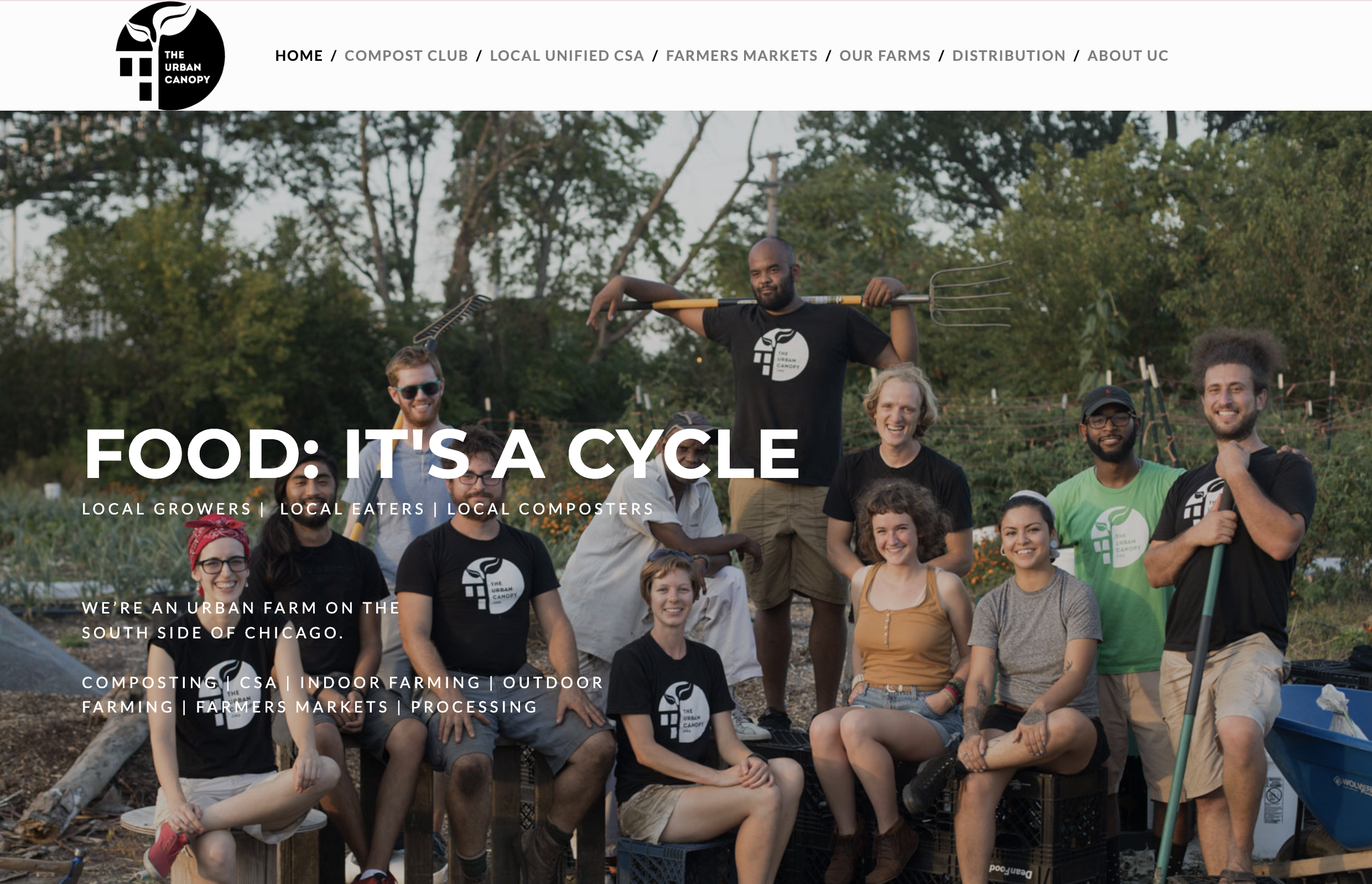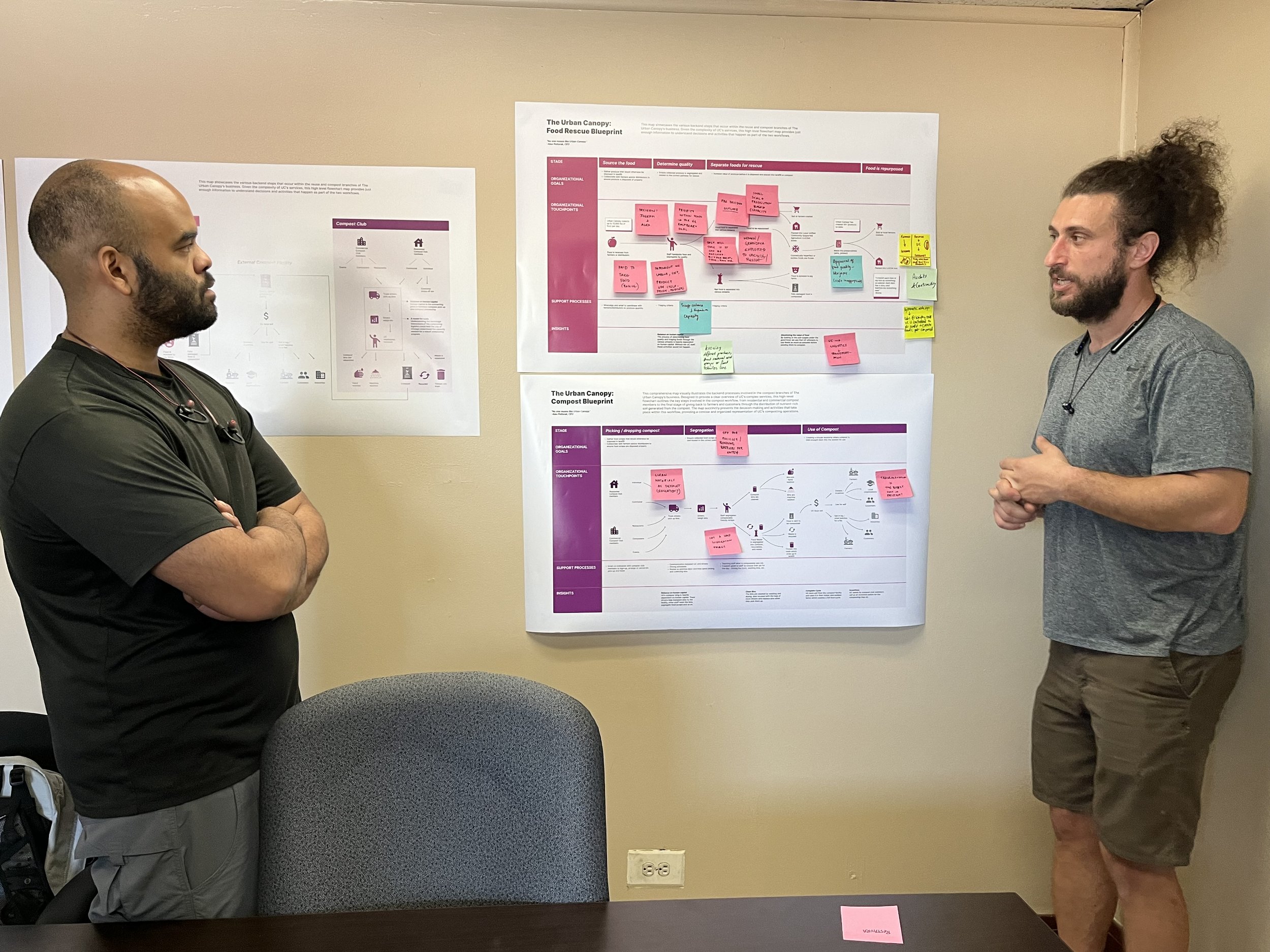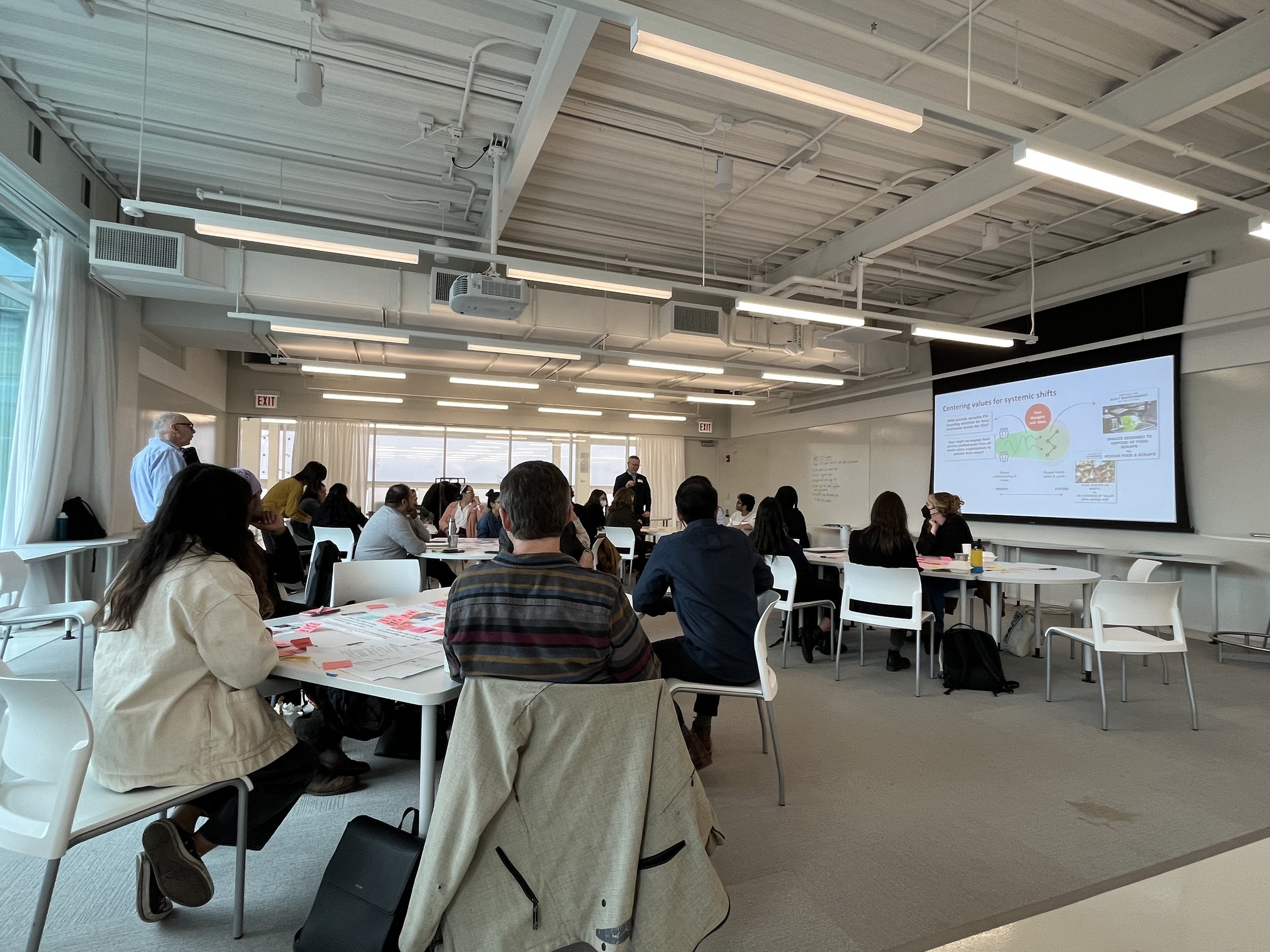Improving Chicago’s Food Waste System
project scope
Role
Student Researcher & Designer
Client
City of Chicago, The Urban Canopy
Year
2023
Timeline
14 weeks
Methods
Primary interviews
Stakeholder Mapping
Journey Mapping
Co-Design Workshop
Tools
Figma, Mural, MS PowerPoint
problem
40% of food produced in the US goes to waste, amounting to 55 million pounds monthly in Chicago.
While many local organizations are trying to do their part in fighting food waste, the NRDC (Natural Resources Defense Council) says Chicago is one of the slowest cities in the US for food recovery.
what was missing?
Lack of coordinated efforts among food system stakeholders.
Limited tools to visualize and understand the food waste ecosystem.
Gaps in internal education and alignment within organizations.
Insufficient inclusive engagement of all relevant stakeholders.
Need for clear, actionable pathways and policy guidance.
what decisions were needed?
Which system leverage points to prioritize for greatest impact.
How to facilitate ongoing cross-sector collaboration.
How to develop and share effective system visualization tools.
How to structure workshops and feedback for stakeholder input.
How to translate insights into actionable policy and organizational changes.
RESEARCH QUESTION
How might we help Chicago’s key food partners identify and activate their unique leverage points to reduce city-wide food waste collectively?
approach
Conducted 5 stakeholder interviews and 3 workshops to map Chicago’s food waste ecosystem
Created system maps and visual tools like service blueprints to identify leverage points and gaps
Visualization
Using maps, facilitated collaboration using 2 co-design workshops between food partners around Chicago including the City of Chicago
Co-Design Workshop
Synthesized insights into actionable recommendations for city-wide food waste reduction
Analysis
Synthesis & Recommendations
Part 1: The Urban Canopy
For the first 7 weeks, we worked with a food rescue and recycling company called The Urban Canopy based in Chicago to better understand their system alongside City of Chicago’s bigger system.
We produced service blueprints after multiple iterations and conversations with the Co-founders. In this picture, we worked on ideas in a workshop with the Co - founders.
What The Urban Canopy founders had to say:
“Conceptualizing what we do gets overwhelming very quickly. These visualization maps are super helpful. We will use these and post them on our website soon.”
— Alex Poltorak, Founder - The Urban Canopy
“These maps will help us convey the value we are trying to add. It will be helpful to show it to our crew, clients and folks driven by our mission.”
— Joseph Taylor, The Urban Canopy
Part 2: Codesign with food partners around Chicago
Food partners included Food waste generators, rescuers, and recyclers. Around 40 food partners attended the workshop.
We produced service blueprints and facilitated two co-design workshops with food partners from all around the city of Chicago and presented findings in order to validate insights and create space for partnerships
Look at me facilitate the workshop around my table alongside 4 food partners.
insights
We came up with 4 insights for each map (Reduce, Rescue, Recycle) Some key insights are:
Lack of strong regulatory support on food waste prevention
Food waste prevention efforts need to be supported with clear policies and regulations in order to increase adoption
Competition deters food service organizations from sharing internal sustainability practices.
This is a barrier for collaboration between like-minded organizations who would benefit from sharing best practices and technical knowledge.
Stakeholders wanted to improve but were not able to since there were knowledge gaps
Stakeholders only had an understanding of their own challenges, but didn’t have opportunities to see the larger system.
High dependency on volunteer labor
The current food rescue system is highly dependent on volunteer labor. Scaling rescue efforts requires reorganizing human capital in order to be sustainable long term.
Policies sometimes penalize effective food waste management.
Current permitting processes and requirements are inconvenient and frustrating for small business owners, who pay the same fee as large commercial businesses to get permits. Adapting and refining permitting processes could incentivize food scrap recycling for all types of businesses.
Communication and co-ordination amongst stakeholders in crucial.
Food waste management requires a lot of partnerships and collaborations across different types of organizations. When scaled up to a city level, having clear communication across stakeholders is a necessity.
impact
The City of Chicago went from having no composting facility to starting a new composting program!
Chicago now has 20 food scrap drop-off locations, which let residents drop off their food waste with ease.




















